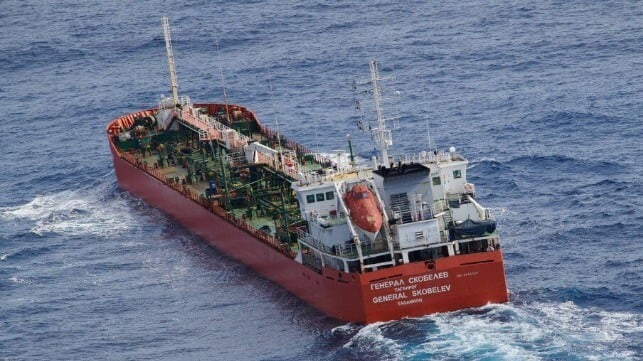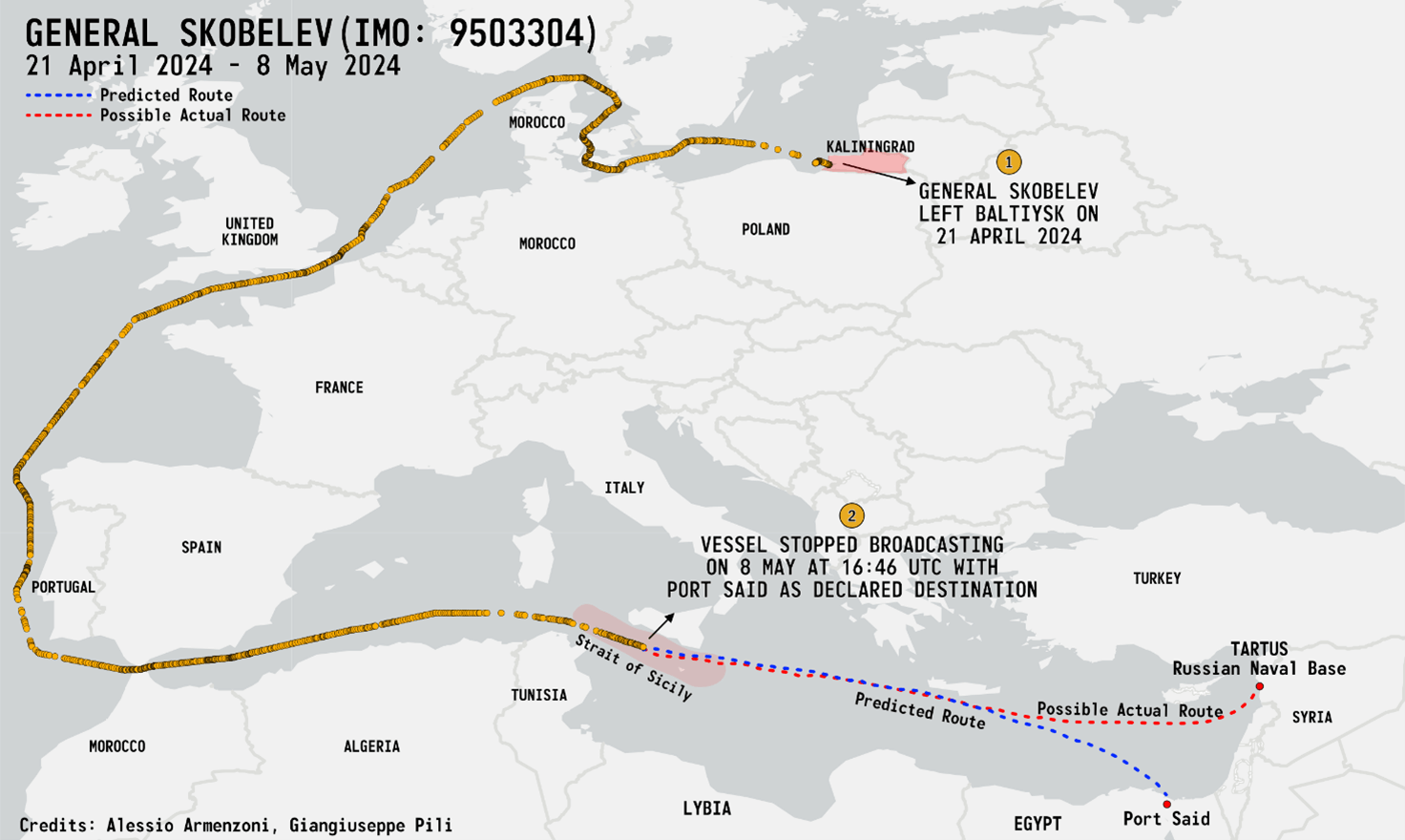After Close Scrutiny, Russian "Ghost Fleet" Ships May Be Changing Tactics

After the attention paid to the sanctioned freighter Sparta IV and other ships in the "Ghost Fleet", Russia’s covert military logistics vessels may be starting to get more cautious. A ship known to OSINT analysts, the Russian-flagged oil tanker General Skobelev (IMO: 9503304), departed from Baltyisk, Russia, on April 21, with a declared destination of Port Said, Egypt. It may have stopped its AIS transmission in the middle of the Sicilian Channel on May 8, a week ago.
Maritime OSINT analyst RussianForcesSpotter pointed out on X that “civilian” tankers were being escorted in the English Channel by the Russian frigate Neustrashimy, which is assigned to the Baltic Fleet and stationed in Baltyisk. Later, the Russian frigates Grigorovich, Merkuriy and Kildin departed from the Russian naval base of Tartus, Syria, heading west, possibly to meet and escort General Skobelev. After this, General Skobelev appears to have stopped its transmission, going dark in the middle of the Strait of Sicily.
 Fig. 1: General Skobelev's route from April 21 to May 8, 2024. Sources: AIS data provided by Global Fishing Watch, annotated by the authors.
Fig. 1: General Skobelev's route from April 21 to May 8, 2024. Sources: AIS data provided by Global Fishing Watch, annotated by the authors.
After almost a week, General Skobelev is still missing and it is unclear where it is heading to at this point, though it is worth noting that there is an established presence in Tartus, Syria. Historically, Russian ships sailing to military bases in Syria are reported to possibly turn their AIS off close to the final destination. This time, perhaps because of the timely observations of multiple, independent marine OSINT trackers, there could be an adaptation in tactics.

that matters most
Get the latest maritime news delivered to your inbox daily.
Giangiuseppe Pili (Ph. D.) is an Assistant Professor in the Intelligence Analysis Program at James Madison University. He is an Associate Fellow at Open Source Intelligence and Analysis at the Royal United Services Institute.
Alessio Armenzoni is a geospatial intelligence analyst working on projects related to maritime security. He studied at the Centre for Higher Defense Studies from the Italian MoD.
The opinions expressed herein are the author's and not necessarily those of The Maritime Executive.
